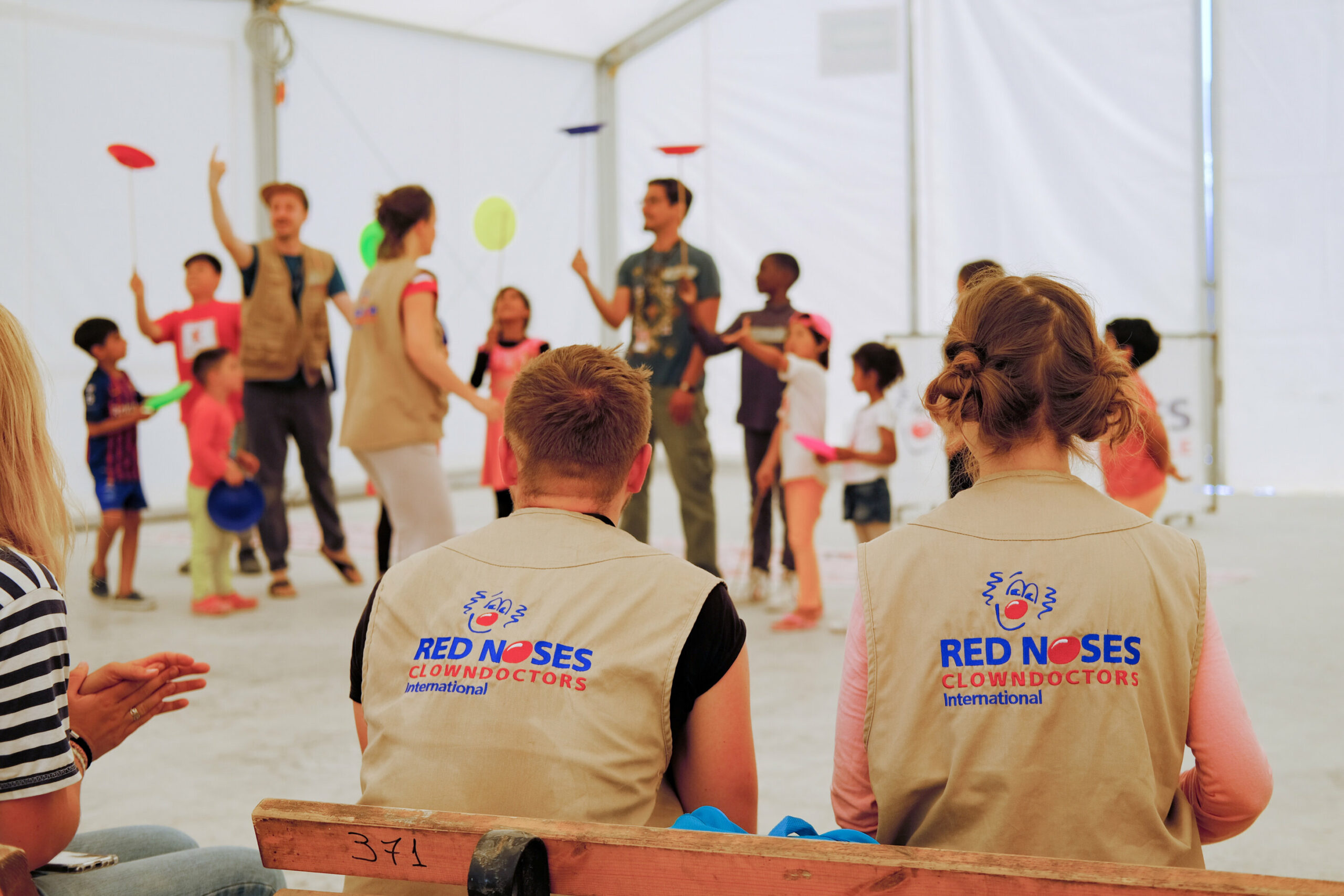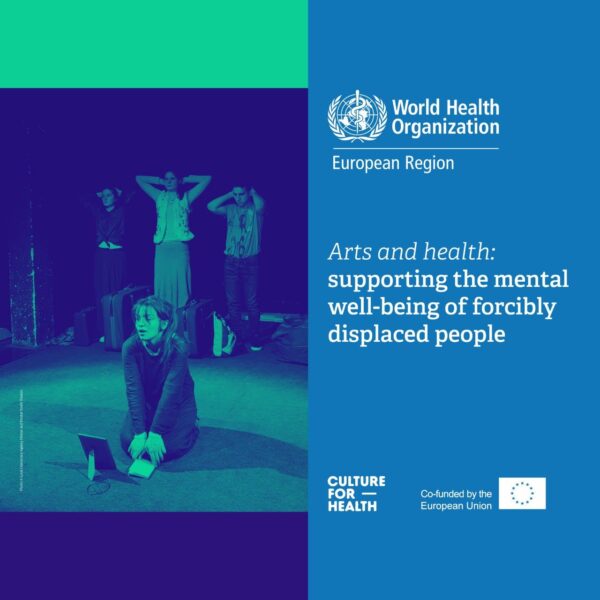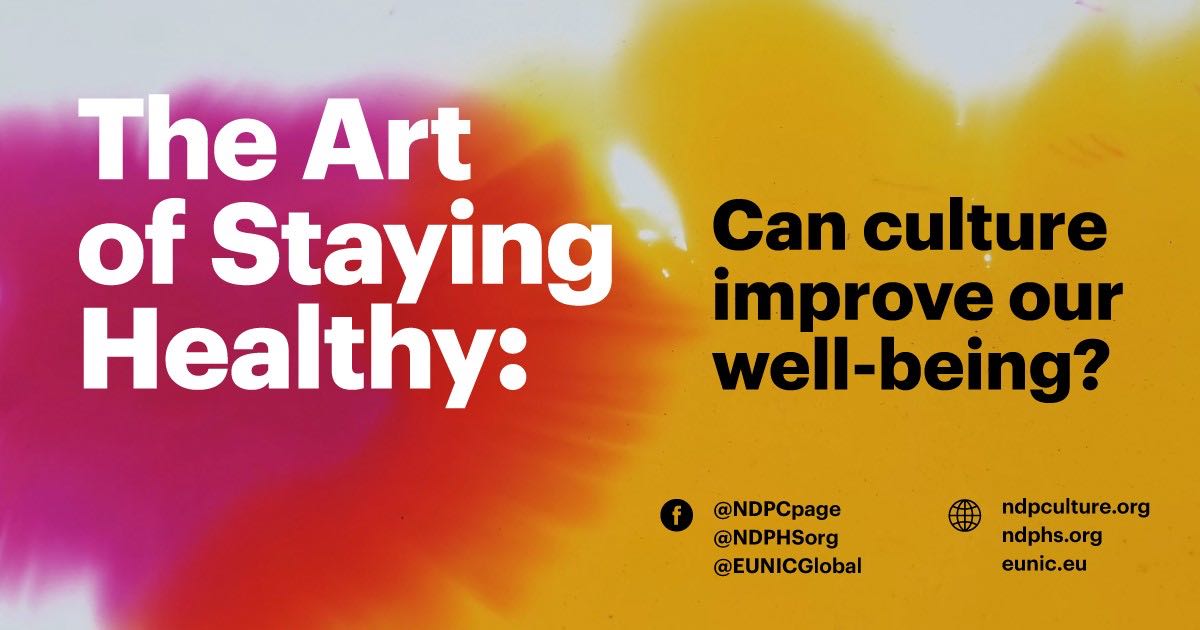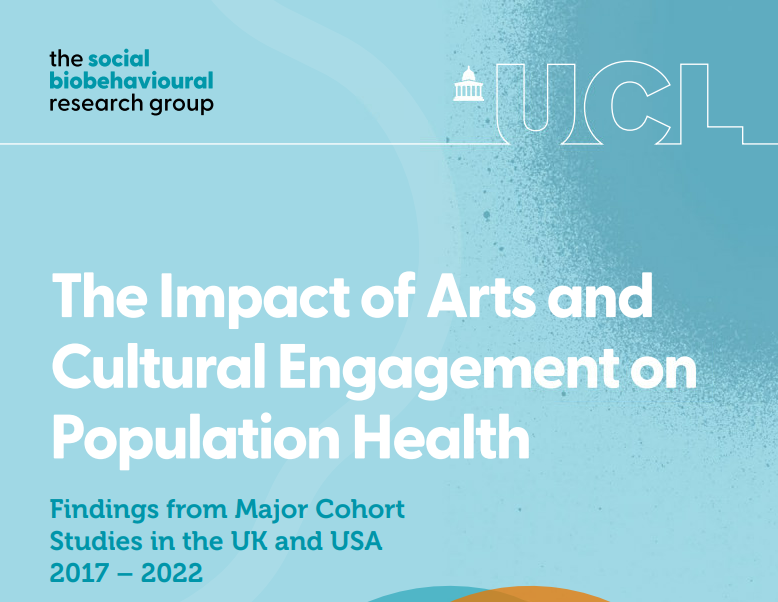The arts have shown to have a positive impact on improving people's health and wellbeing in crisis contexts, where words may not fully capture the complexities of conflict and displacement.
One organization that has been at the forefront of using healthcare clowning in crisis contexts is RED NOSES International. Through their Emergency Smile program, professionally trained healthcare clowns engage with children and families in refugee centers, war-affected countries, and remote areas with little access to mental health services.
This program aims to enable joy and promote the emotional well-being and resilience of children and youth affected by crisis and their support systems through humour, artistic activities and its coping mechanism, and includes parades, clown shows, and a five-day clown camp for children. Specially developed, ‘Humour Relief Workshop’ helps to relieve stress and improve relationships within teams of aid workers and community members.
By creating a safe and playful environment, clowning can provide a sense of normalcy and belonging in a world that has been turned upside down.
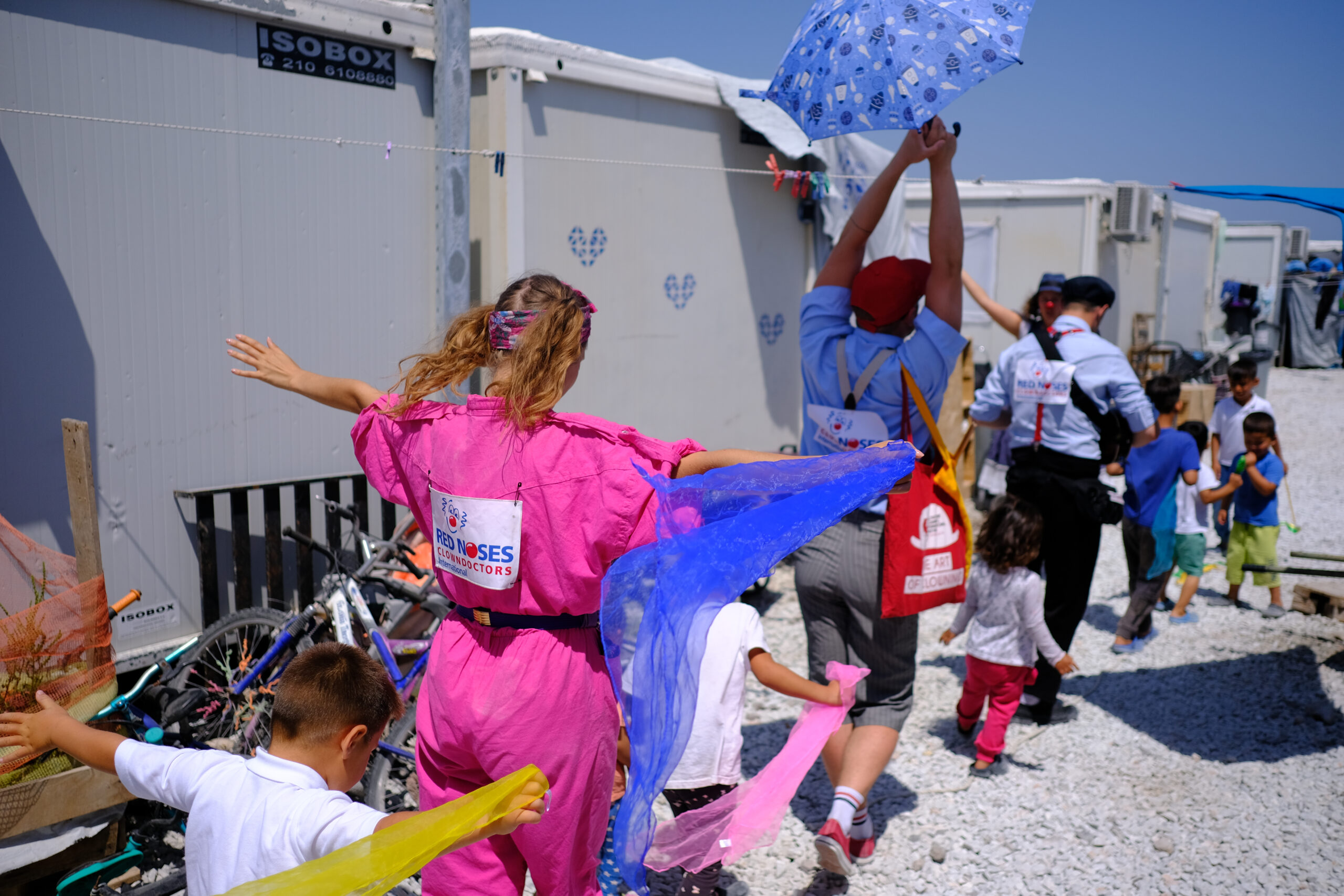
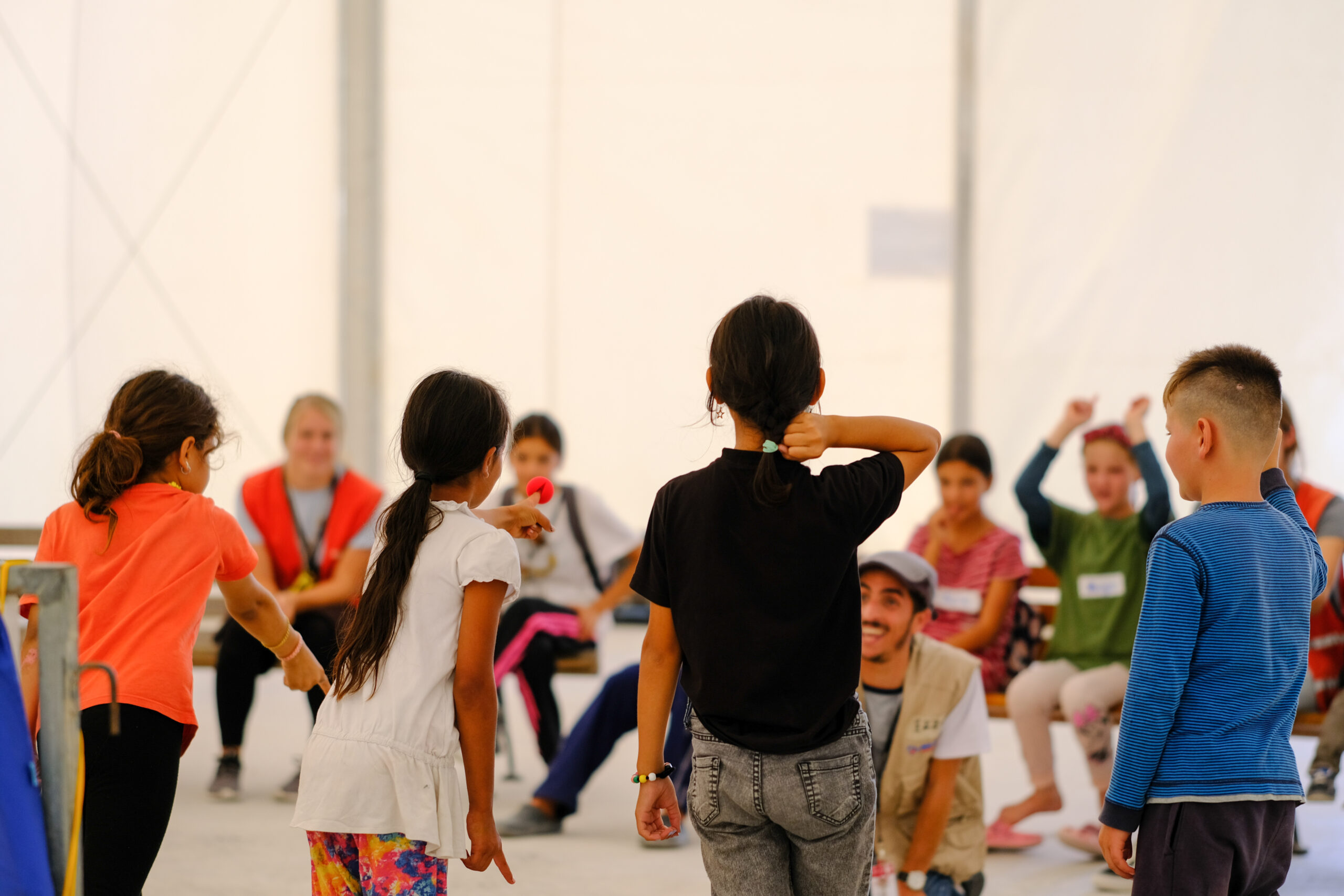
Clowning has been shown to have a positive impact on the mental health and wellbeing of refugees. In crisis situations, the use of arts and humor can provide a much-needed source of relief and distraction from the challenges of displacement and uncertainty.
The impact of clowning activities for refugees is not limited to the individual level. It can also have a positive effect on the wider community by promoting empathy and understanding between refugees and the host population. This can help to break down barriers and reduce tensions in a time of crisis.
The Research Nugget “Clowning in Emergency Contexts” analyses the mental hardship of people living and working in refugee contexts and explains how creative and humorous activities including clowning can bring relief and mental support to people in crisis.
Find the Research Nugget hereThe Research Nugget “Clowning in Emergency Contexts,” explores how arts and humour, particularly arts-based activities such as healthcare clowning, can help reduce stress and anxiety, boost self-esteem and confidence, and improve mental health for people living and working in refugee contexts. The RED NOSES Research Nuggets present evidence-based research and analysis on a specific topic.
The purpose of the Research Nugget is to provide valuable insights and recommendations for policymakers, practitioners, and anyone interested in understanding the positive impact of artistic and playful activities on the mental health and wellbeing of vulnerable populations in crisis contexts.
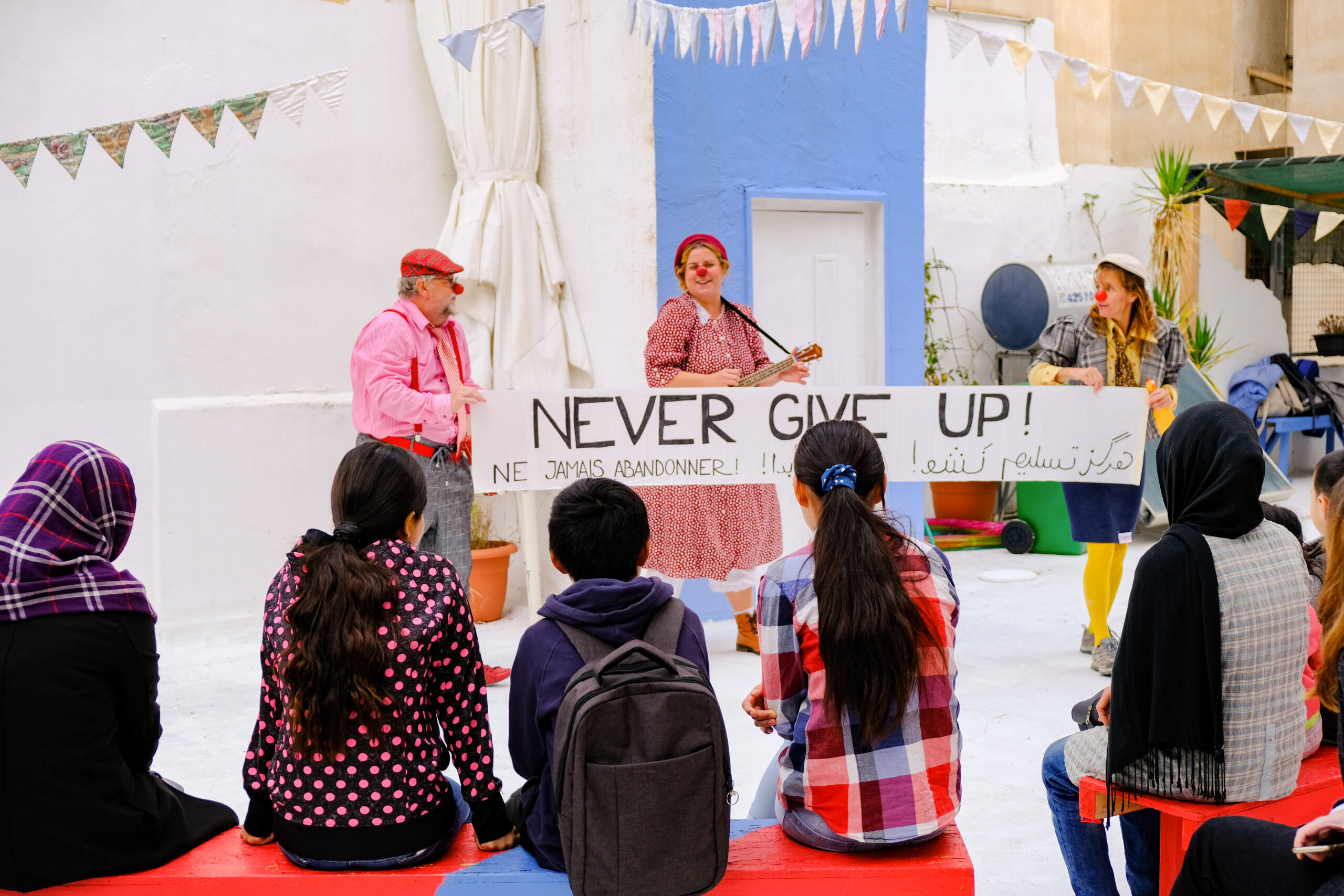
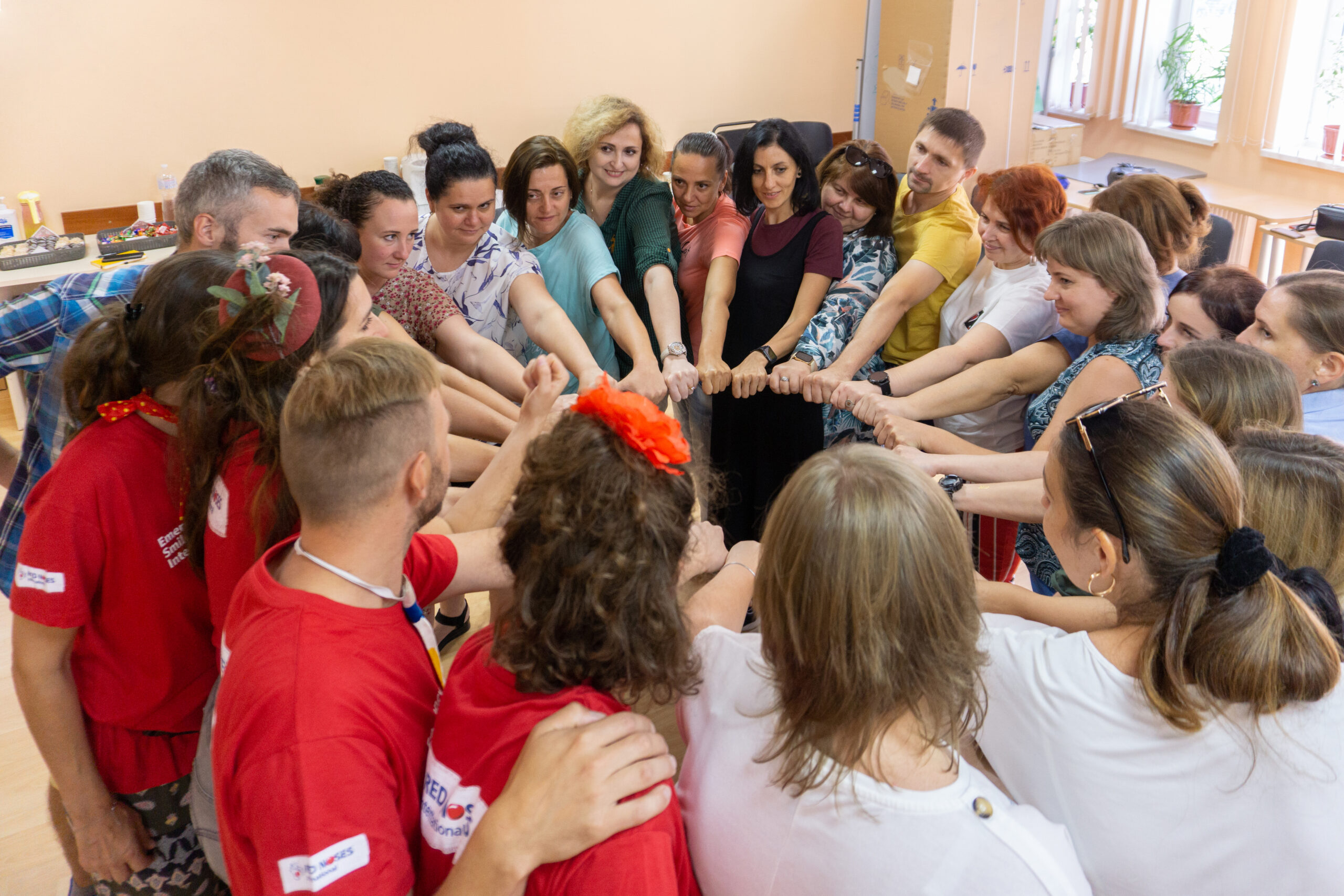
Mental health for all – in mentally healthy communities
Both the CultureForHealth report and The Research Nugget speak to the ways in which creative expression and connection can support mental health and wellbeing in challenging contexts. By fostering a sense of community, providing opportunities for self-expression, and promoting joy and humor, artistic practices can serve as powerful tools for promoting resilience and healing. Whether through clown performances in crisis settings or other cultural initiatives aimed at promoting health and wellbeing, the arts have a vital role to play in supporting mental health and wellbeing for individuals and communities alike.
RED NOSES International is one example of the many organizations and practitioners who are using the arts to support the mental health and wellbeing of vulnerable populations in crisis settings. As the world continues to face ongoing humanitarian crises, it is essential that policymakers and local governments prioritize the integration of artistic and playful activities into emergency response mechanisms for refugees and aid workers. By doing so, we can help promote greater resilience, healing, and overall well-being for those who are most in need.
While the use of clowning in emergency contexts is not a one-fits-all solution, it is an important tool in promoting the mental health and wellbeing of refugees. By supporting arts-based interventions, we can help to create a more compassionate and resilient world for all.
Other inspiring readings
